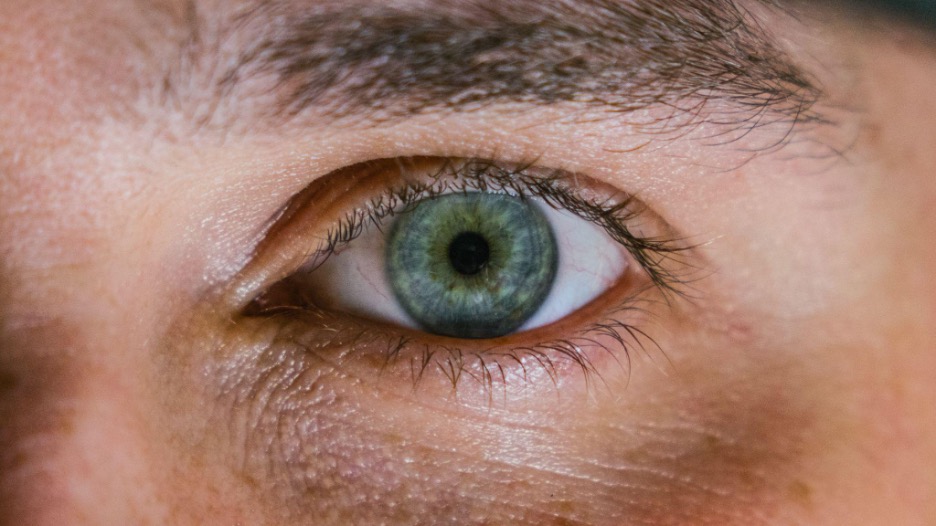What causes eye twitching?
What is eye twitching?
When your eye twitches, your eyelid blinks are reflex and spontaneous. However, if such reflex blinking occurs many times daily, it’s a cause for concern. Acute eye twitching can impact your vision. You can raise or close your eyelid with two facial muscles. When one or both of these facial muscles encounter problems, your eye might twitch. This article will explore what causes eye twitching, its risk factors, signs and symptoms, diagnosis, and its treatment.

You can raise or close your eyelid with facial muscles.
What are the causes of eyelid twitching?
One reason leading to chronic and regular eye twitching is when both eyes close or twitch at the same time. This condition is also known as benign essential blepharospasm. Essential blepharospasm happens when one or both (upper and lower) of your eyelids close reflexively for a few seconds to a few hours. When your eyelids first begin to close, you might wink or blink in response. As time goes on and your condition progresses, your eyelids may shut so tightly that you are unable to see, as a result. These muscular contractions or spasms can also impact other facial muscles.
Another cause of occasional eyelid twitching is fatigue and too much caffeine. If you do not sleep enough due to stress or some other factor, your eyelids can twitch more. Therefore, it is best that you enjoy adequate sleep and abide by a regular sleep timetable to alleviate your eye twitching [1]. Digital eye strain due to excessive use of screens is also another prevalent reason for eye twitching.

Adequate rest might mitigate eyelid twitching.
If you experience eyelid twitching after booze consumption, try to reduce your alcohol intake and see if your twitching subsides.
Additionally, problems with the nervous system, like Meige syndrome or Parkinson disease, might lead to eye twitching as well. When you suffer from brain damage due to a stroke or from inflammation, your eyes are likely to twitch as well. You might also experience headaches alongside your eyelid twitching. [2].
When you develop eye allergies and have watery, swelling or itching eyes, you might rub your eyes to deal with the discomfort. However, rubbing your eyes disperses histamine into your eyelid tissues. These histamines may cause eye twitching [3].
If you suffer from dry eyes, your eyes might tend to twitch as well. To reduce the twitching, replenish your eyes with moisture, such as applying eye drops prescribed by your eye care professional or obtained over-the-counter. While anyone can experience a twitching of the eye, this condition is more prevalent in older women.
Are your eyes at risk of twitching?
Eye twitching is a hereditary condition. If your family has a history of eye twitching, chances are that you would likely experience similar conditions. Moreover, if you have injured your head in the past, you might also encounter eye twitching.
What happens when your eyelids twitch?
Eyelid twitches can differ in frequency and intensity. You might have eyelid twitches once every few seconds over a longer period of time whereas your child might experience these twitches less regularly. Typically, your upper lid only would twitch by shutting partly or closing all the way but it is possible that both the upper and lower eyelids twitch.
What are the other symptoms of twitching eyelids?
When your eyelids twitch, your eyes might feel uncomfortable and you might blink more often than usual. You might experience dryness in your eyes and have vision problems as a result of a lack of moisture and regular twitching.
How is eye twitching diagnosed?
When you visit your eye care professional to undergo a comprehensive eye examination, they would likely do a test to assess the condition of your nervous system as well. To determine the cause of your eye twitch, you might be subjected to a CT scan or MRI as your eye care professional might want to evaluate the internal structure of your brain.

You might have to undergo a CT scan to have your brain and other internal body organs examined.
How is eye twitching treated?
Typically, if your eye twitch is mild or infrequent, you might not require any treatment. You would just have to identify the underlying cause and eliminate or reduce the activity triggering the eye twitch to mitigate your symptoms. If your twitching symptoms remain grave, you might go for a surgery called myectomy to remove some nerves and muscles of your eyelids. This is because chronic and severe eye twitching could give rise to other problems like permanent damage of the eyelids, abnormal folding in of eyelids, eyebrows resting lower than normal as well as muscle spasms in other parts of the body like the jaw and neck.
References
[1] American Academy of Ophthalmology. 2021. How To Stop Eye Twitching. [online] Available at: <https://www.aao.org/eye-health/tips-prevention/how-to-stop-eye-twitching> [Accessed 30 August 2021].
[2] Healthline. 2021. Migraine Eye Twitch: Are They Connected?. [online] Available at: <https://www.healthline.com/health/migraine/migraine-eye-twitch#cause> [Accessed 31 August 2021].
[3] All About Vision. 2021. Why Does My Eye Twitch?. [online] Available at: <https://www.allaboutvision.com/conditions/eye-twitching.htm> [Accessed 31 August 2021].
[4] Cedars-sinai.org. 2021. Eye Twitching | Cedars-Sinai. [online] Available at: <https://www.cedars-sinai.org/health-library/diseases-and-conditions/e/eye-twitching.html> [Accessed 30 August 2021].
Tools Designed for Healthier Eyes
Explore our specifically designed products and services backed by eye health professionals to help keep your children safe online and their eyes healthy.
